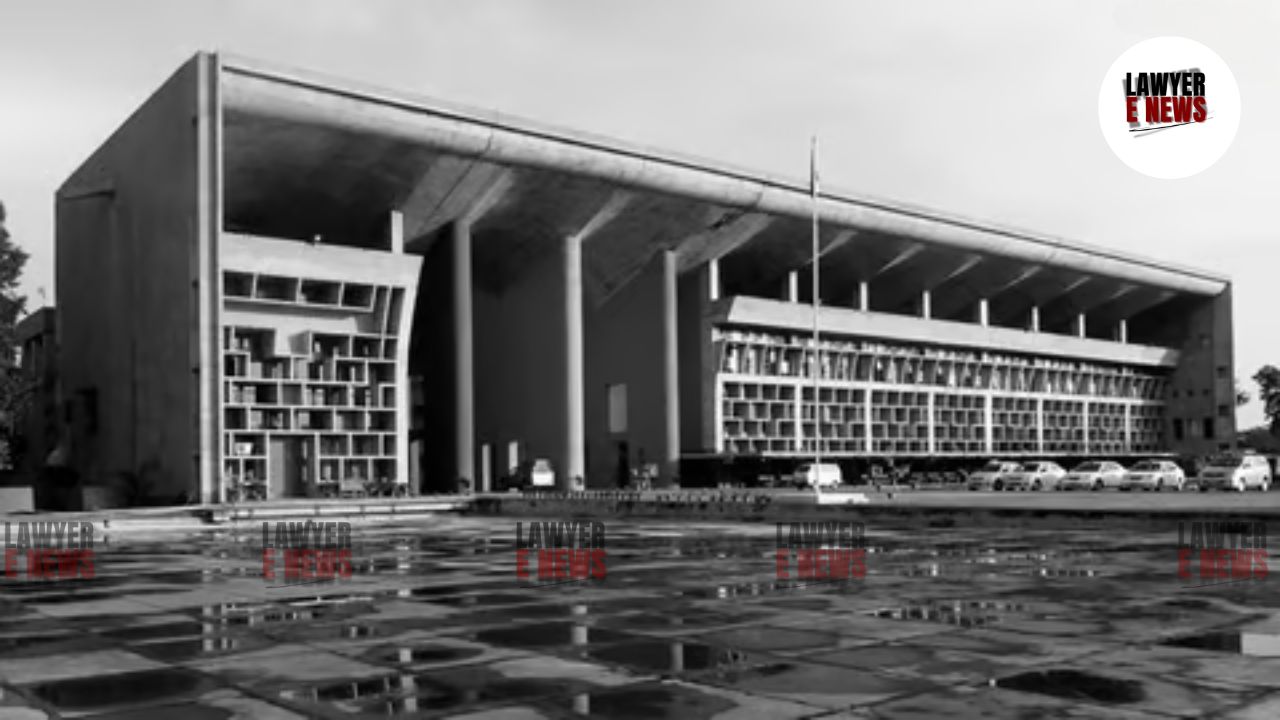-
by Admin
15 February 2026 2:36 AM



Tenant’s 60-year occupation deemed unauthorized due to lack of rent payments and illegal construction. The High Court of Punjab and Haryana has rejected a writ petition filed by Umrao Singh challenging his eviction from a property he occupied for nearly 60 years. Justice Harsh Bunger, in a ruling on September 2, 2024, emphasized that the petitioner, despite long-term tenancy, had no legal claim to continue occupying the land without a registered lease. The court also upheld the applicability of the Public Premises (Eviction of Unauthorized Occupants) Act, 1971, underscoring the petitioner’s failure to pay rent and unauthorized construction on the property.
The petitioner, Umrao Singh, claimed to have been a tenant of the Municipal Committee of Mahendergarh since 1963-64, residing on a plot of land while tethering animals. He acknowledged the Municipal Committee's ownership but disputed the site plan and denied unauthorized possession. The rent, initially set at ₹150 per year, had remained unpaid for an extended period.
In 2011, the Municipal Committee initiated eviction proceedings under Sections 5 and 7 of the Haryana Public Premises and Land (Eviction and Rent Recovery) Act, 1973. The Collector of Mahendergarh ordered Umrao Singh's eviction on August 29, 2011, citing unpaid rent and unauthorized modifications to the property. Singh's subsequent appeal to the Divisional Commissioner, Gurugram, was dismissed in 2024. As a result, he filed the present writ petition seeking to overturn the eviction orders.
Justice Harsh Bunger thoroughly examined the petitioner’s claims and arguments. The court noted that the petitioner had failed to substantiate his claim of lawful tenancy as he did not have a registered lease. Although Singh argued that he had never refused to pay rent and was willing to clear dues with interest, the court found no record of actual payments in recent years. Furthermore, it was determined that Singh had constructed unauthorized structures on the land, which was a violation of the terms of the tenancy.
The court highlighted that the petitioner had benefited from an excessively low rent for decades while depriving the Municipal Committee of the opportunity to collect market-rate rent for the property.
In upholding the eviction, the court relied on the provisions of the Public Premises Act, which is designed to provide for the summary eviction of unauthorized occupants from public property. The petitioner’s contention that his possession was legal because he was a tenant was dismissed based on precedents from the Supreme Court. The court emphasized that merely being in possession does not confer legal rights when there is no registered lease or valid tenancy agreement.
Justice Bunger also referenced the Supreme Court’s decisions in Ashok Marketing Ltd. v. Punjab National Bank and Nopany Investments (P) Ltd. v. Santokh Singh, which establish that the Public Premises Act overrides tenancy protections under the Rent Control Act. Filing an eviction petition is considered sufficient notice to terminate tenancy under the Public Premises Act, making additional notice requirements redundant.
The court ruled that Singh’s eviction was justified due to non-payment of rent and the unauthorized construction. "There is no justification for the petitioner to continue in the premises... as it would be to the prejudice of the Municipal Committee," the judgment stated.
“There is no registered lease deed in favour of the petitioner, whereunder he is entitled to continue as a tenant in the premises,” observed Justice Bunger. “The Public Premises Act was enacted to provide for the summary eviction of unauthorized occupants of public premises. The filing of an eviction petition is itself a notice to quit upon the tenant.”
The Punjab and Haryana High Court's ruling in this case reaffirms the authority of the Public Premises Act over long-term tenants who do not hold valid leases or have failed to pay rent. The decision sends a clear message that possession of public land without fulfilling legal obligations, such as payment of rent and adherence to property usage rules, will not be tolerated. The dismissal of the petition further strengthens the Municipal Committee's right to recover public properties and ensure proper utilization for the public benefit.
Date of Decision: September 2, 2024
Umrao Singh v. Commissioner, Gurugram Division and Others
